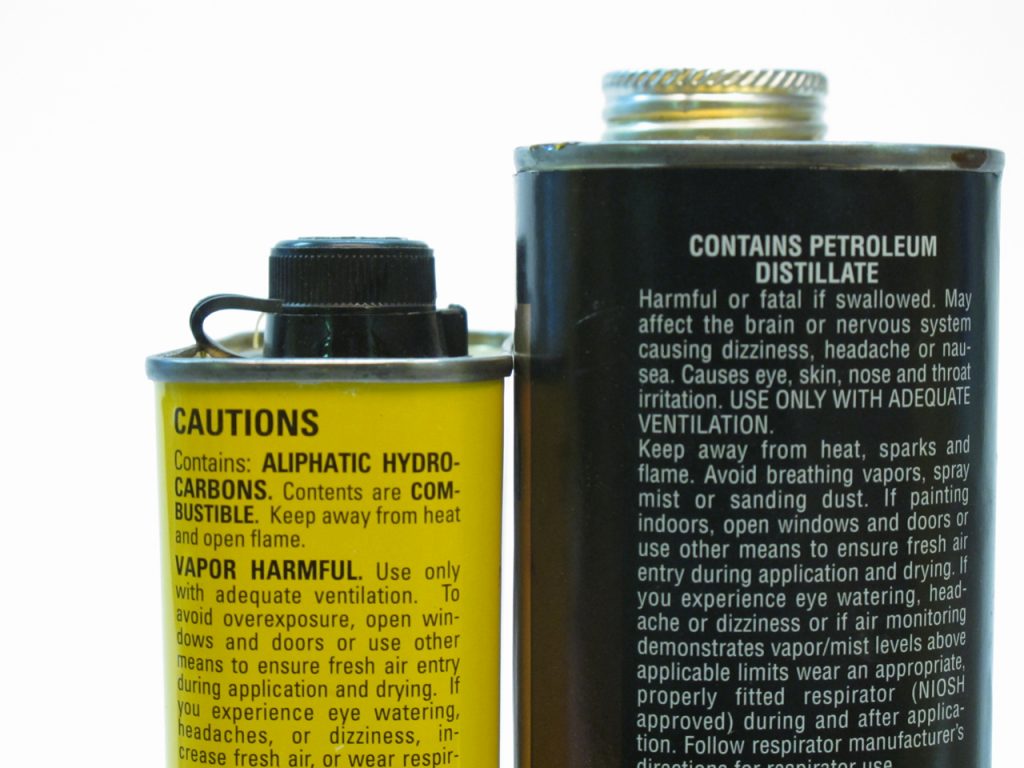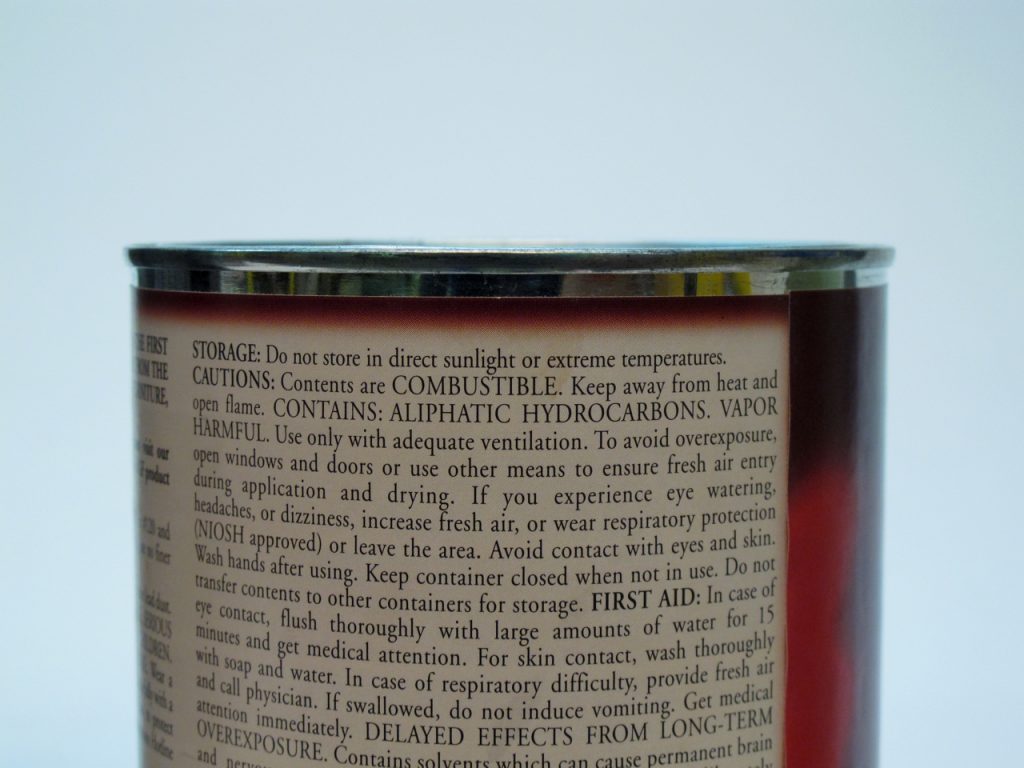We may receive a commission when you use our affiliate links. However, this does not impact our recommendations.

Minwax Tung Oil is on the left. McCloskey Tung Oil is on the right. Both are actually varnish.
You may have seen some of my complaints directed at Minwax and General Finishes for listing “aliphatic hydrocarbons” as an ingredient on some of their products rather than the more common “petroleum distillates” or “mineral spirits.” I’ve written about this several times in the magazine and on this blog. I’ve speculated that these companies do this to make you think their products are something special, distinct from other company’s oil-based products.
Well, one reader disagrees with me, but I don’t know how to respond to him because he sent his disagreement using a “contract form,” which doesn’t include an email address. So I’m putting my response here in hopes that he may see it and respond. Also, because some readers may be chemists who can contribute more to this discussion.

General Finishes also uses the term aliphatic hydrocarbons on their Seal-A-Cell, which is also varnish.
Here is what the reader wrote:
Aliphatic hydrocarbons are distinctly different from paint thinner or petroleum distillates! We used an aerosol spray that contained aliphatic hydrocarbons and EVERYONE that used it without adequate ventilation came down with an extreme sore throat. The aliphatic hydrocarbons come from natural gas instead of petroleum. The safety data sheet for the aliphatic hydrocarbons contains all sorts of dire warnings about respiratory irritation, headaches, extreme flammability and more.
We had several fires start from the fumes being near an electrical spark. Whereas petroleum distillates are much easier on our physiology and in my opinion less flammable. We were told at the time that aliphatic hydrocarbons made the sealing spray harder when it was fully cured. So, yes there is a difference.
I’m not a trained chemist. Nevertheless, here’s what I think from my reading about coatings. There’s a category of solvents called “hydrocarbons.” These are compounds of hydrogen and carbon atoms only. There are two types: aliphatic and aromatic.
Aliphatic hydrocarbons are straight-chain, while aromatic hydrocarbons are cyclic; they contain a benzene ring. Aliphatic hydrocarbons are less toxic than aromatic and also weaker in solvent strength. Aliphatic hydrocarbons include naphtha and mineral spirits, which is also called “paint thinner” because when these solvents were introduced to replace turpentine for thinning paints, all paints were oil-based. There were no water-based paints, which of course thin with water.
Aromatic hydrocarbons include benzene, toluene and xylene. Benzene is no longer available in the consumer market because it is a known carcinogen.
This is a simple explanation limited to common solvents used in coatings (paints and finishes). It’s very easy to get quite deep into the weeds of organic chemistry, but I think my explanation is correct as far as it goes. I don’t know about the reader’s claim of the difference between natural-gas sources and petroleum sources. I’ve never heard this, and I haven’t been able to find information on this.
The magazine editors forwarded the question to me. Before I knew there was no way to respond to the reader, I wrote this, which I think needs to be addressed if the reader is correct.
“If what you say is true, why would Minwax and General Finishes use the more toxic aliphatic hydrocarbons rather than petroleum distillates, which would work quite well?”
Here are some supplies and tools we find essential in our everyday work around the shop. We may receive a commission from sales referred by our links; however, we have carefully selected these products for their usefulness and quality.









Both “aliphatic hydrocarbons” and “petroleum distillates” are broad overlapping classes of substances with disparate properties. There are more and less toxic examples of each. “Aliphatic hydrocarbons” is more specific, so preferred in my mind if applicable.
Among the more common of these substances, the aromatics are likely to be better solvents and more toxic.
The term “aliphatic hydrocarbon” is a VERY generic term that applies to ALL chemicals made of carbon and hydrogen that are in chain form and don’t contain aromatic rings (like benzene). It’s analogous to saying “carbohydrate” and says nothing at all about the actual chemical composition except what the name generically means. Gasoline is an aliphatic hydrocarbon. So are methane (natural gas), propane (barbecue gas), butane (cigarette lighter fuel), octane (in gasoline).
“Mineral spirits” typically refers to a specific fraction in the petroleum distillation process, although that has probably been modified to make it “odorless”.